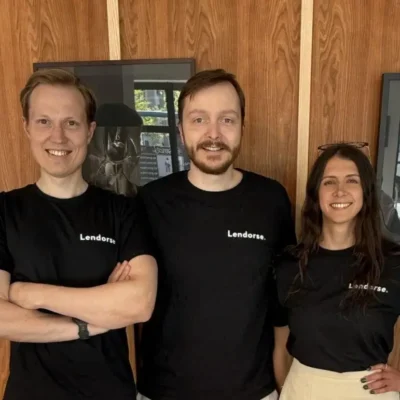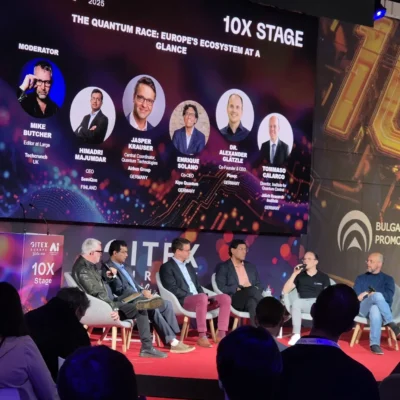Oxford Ionics, a UK-based tech startup, has just raised more than €34 million to enable a more potent quantum computing future. The technology has been hailed as having the potential to change the world by tackling societal issues and concerns, and Oxford Ionics is on a mission to guide research in this area.
Oxford Science Enterprises and Braavos Investment Advisers spearheaded the Series A capital campaign. In addition to Hermann Hauser (the founder of chip manufacturer ARM), Lansdowne Partners, Prosus Ventures, 2xN, Torch Partners, and other investors participated in the funding round.
Oxford Ionics is a startup that was established in 2019 to advance quantum computing, a new field of technological advancement that is anticipated to have a significant impact in the future. When solving problems that are too big or complicated for conventional computers, quantum computing makes use of the laws of quantum physics.
Dr. Chris Ballance and Dr. Tom Harty founded Oxford Ionics to address scalability, one of the major problems in this new industry. The business has now secured further investment for its strategy, which uses trapped ions.
Trapped ions appear to be among the most advanced technologies fighting to build a more powerful quantum future as the field of quantum computing develops. Oxford Ionics’ quantum system is among the best-performing quantum systems to date. All of these devices are driven by trapped ions.
“If we’re to uncover and unlock the true power and promise of quantum computing, we need to overcome the key problems that are holding it back – scalability, integration, and performance,” stated Dr. Chris Ballance, co-founder of Oxford Ionics.
“We have created a novel trapped-ion strategy to handle all three. Oxford Ionics is committed to developing solutions that will enable quantum computing to win the race rather than just make a few minor advancements. We are getting even closer to achieving this goal thanks to our most recent round of fundraising and the experience, insight, and expertise of our new investors,” continued Dr. Chris.
The small startup’s trapped-ion technology now holds global records for the fastest quantum operations, the longest quantum coherence time, and the fastest quantum network in tests. The highest performance yet demonstrated while using chips produced on a semiconductor production line has also been attained.
The team’s distinct methodology is what distinguishes it. Lasers have been the main source of qubit control in trapped-ion systems up to now. This method works well for small computers, but as processor size expands and qubit counts rise, it becomes unworkable and error-prone.
The qubits are controlled using an exclusive, patented Electronic Qubit Control (EQC) technology in Oxford Ionics’ trapped-ion computers rather than by lasers. With the scalability and dependability of electronics built into silicon chips, they may now combine the unmatched quantum performance of individual atoms.
It improves the technology’s performance and increases its scalability.
The Oxford-based workforce has multiplied tenfold since 2019. The Oxford Ionics team is currently made up of the best minds in the quantum field, and they collectively have over 100 years of experience in this field.
Will Goodlad from Oxford Science Enterprises said, “Oxford Ionics is establishing the groundwork to finally make quantum computing a scalable, integrable, and practical choice through its unique technique, developed by some of the world’s top minds in the quantum field. Chris, Tom, and the team have been able to repeatedly show that their work in the lab can and will translate to the real world, building on more than a decade at the vanguard of this field. We’re happy to be partnering with them on this adventure.
With this fresh cash, the team hopes to continue expanding and expects to fill positions throughout the many departments of the business. designers, scientists, engineers, and an expanding back-office crew, in addition to software developers and engineers.
“Quantum computing opens up the next frontier in computing power for many industries, but getting there requires the development of qubit technologies that can be created at a vast scale,” said Niels Nielsen, co-founder of 2xN.
Nielsen further added, “All of this is accomplished without sacrificing power and with minimal mistake rates. The EQC technology from Oxford Ionics provides a way to incorporate trapped ion qubits’ strength and potential into conventional semiconductor processes.”
Image Credit: Oxford Ionics





